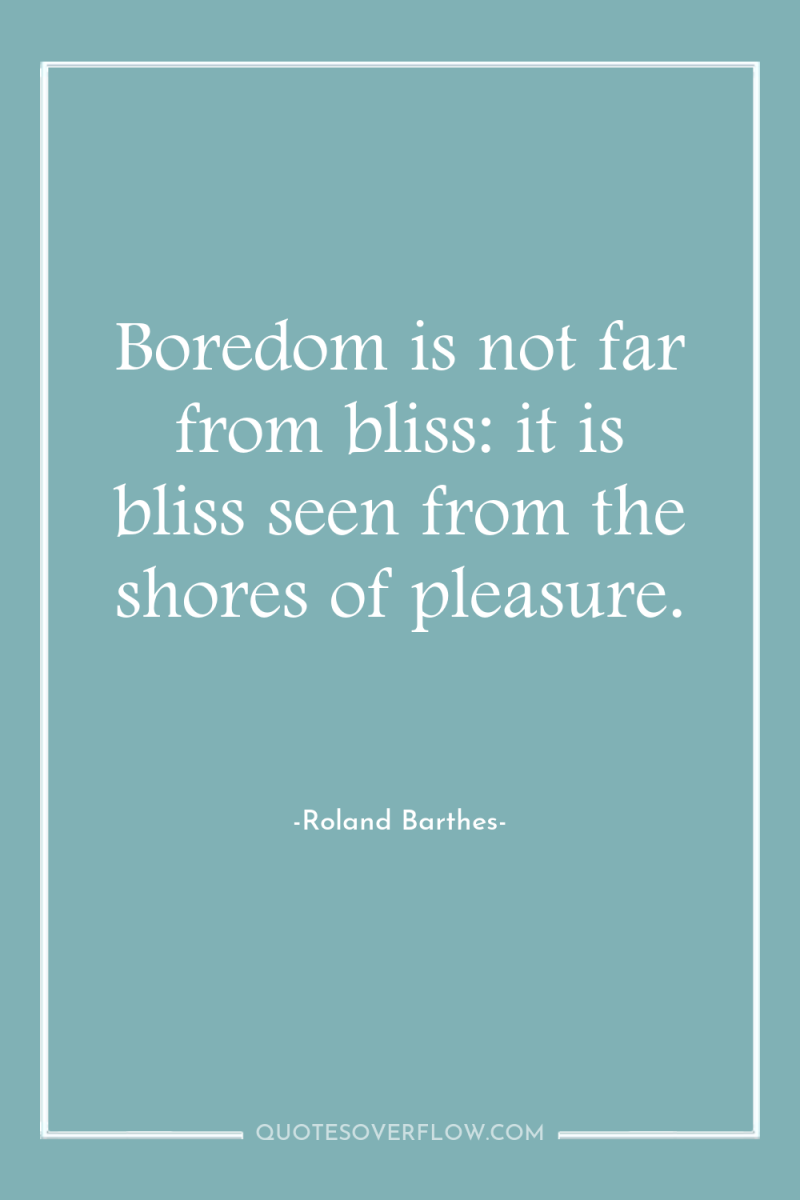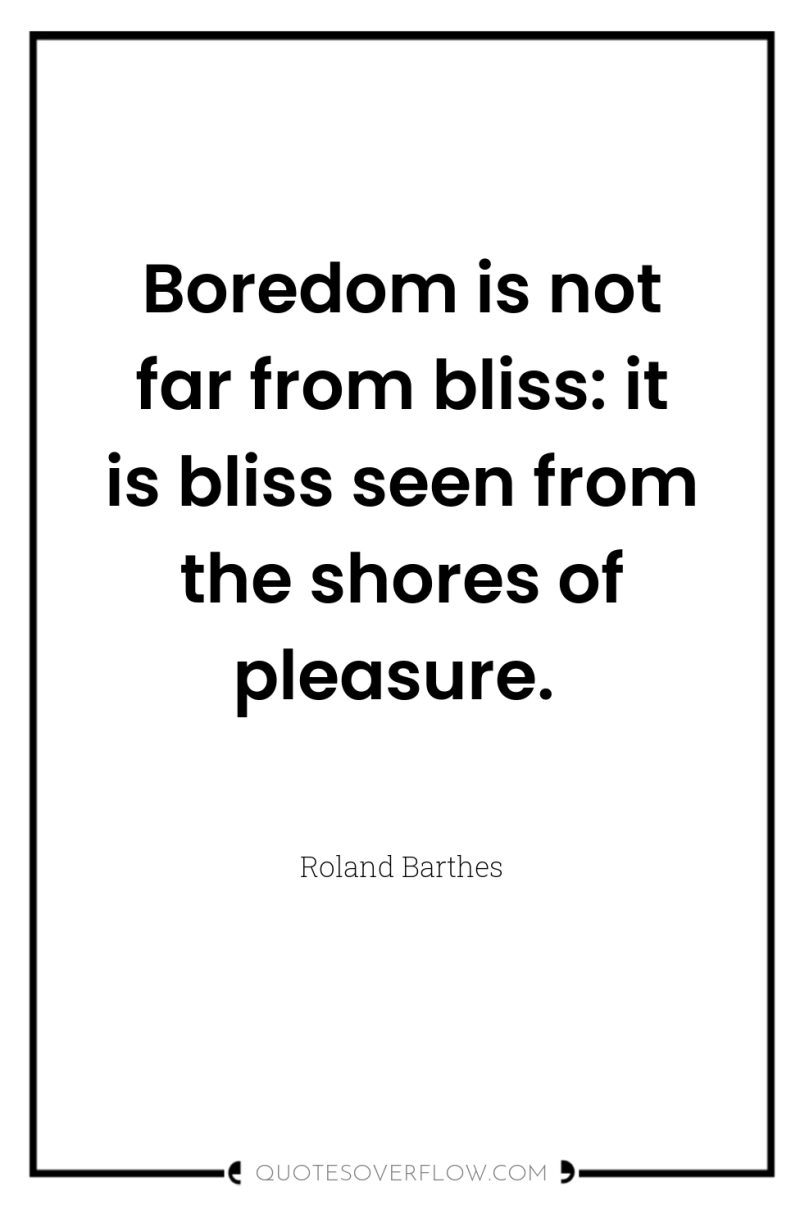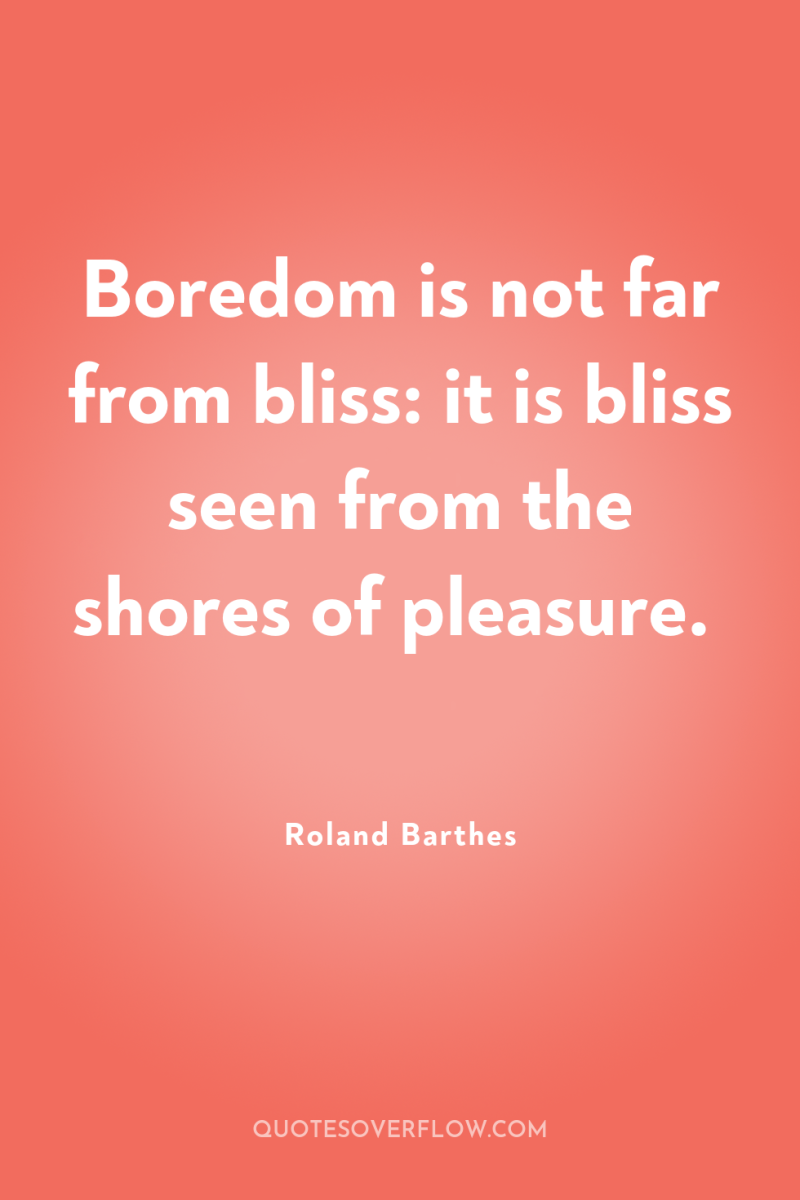Roland BarthesBoredom is not far from bliss: it is bliss seen from the shores of pleasure.




About This Quote
Boredom is not far from bliss: it is bliss seen from the shores of pleasure. Essentially, this quote means that you will never reach the perfect state of happiness. Happiness is not meant to be attained but to be maintained. To improve yourself constantly and constantly strive for a better state of being. In fact, there is a lot of joy in doing so.
Source: The Pleasure Of The Text
Some Similar Quotes
- V-Day…if you need this one day in a year to show everyone else you truly care for “your loved one” I think it’s quite stupid. I hate this commercialism. It’s all artificial, and has nothing to do with real love.
- There comes a time in your life when you have to choose to turn the page, write another book or simply close it.
- My head’ll explode if I continue with this escapism.
- I suppose it’s not a social norm, and not a manly thing to do – to feel, discuss feelings. So that’s what I’m giving the finger to. Social norms and stuff…what good are social norms, really? I think all they do is project a limited...
- When male authors write love stories, the heroine tends to end up dead.
More Quotes By Roland Barthes
- You see the first thing we love is a scene. For love at first sight requires the very sign of its suddenness; and of all things, it is the scene which seems to be seen best for the first time: a curtain parts and what...
- To whom could I put this question (with any hope of an answer)? Does being able to live without someone you loved mean you loved her less than you thought...?
- (Love’s atopia, characteristic which causes it to escape all dissertations, would be that *ultimately* it is possible to talk about love only *according to a strict allocutive determination*; whether philosophical, gnomic, lyric, or novelistic, there is always, in the discourse upon love, a person whom...
- …This singular reversal may perhaps proceed from the fact that for us the “subject” (since Christianity) is the one who suffers: where there is a wound, there is a subject: die Wunde! die Wunde! says Parsifal, thereby becoming “himself”; and the deeper the wound, at...
- Gossip reduces the other to he/she, and this reduction is intolerable to me. For me the other is neither he nor she; the other has only a name of his own, or her own name. The third-person pronoun is a wicked pronoun: it is the...